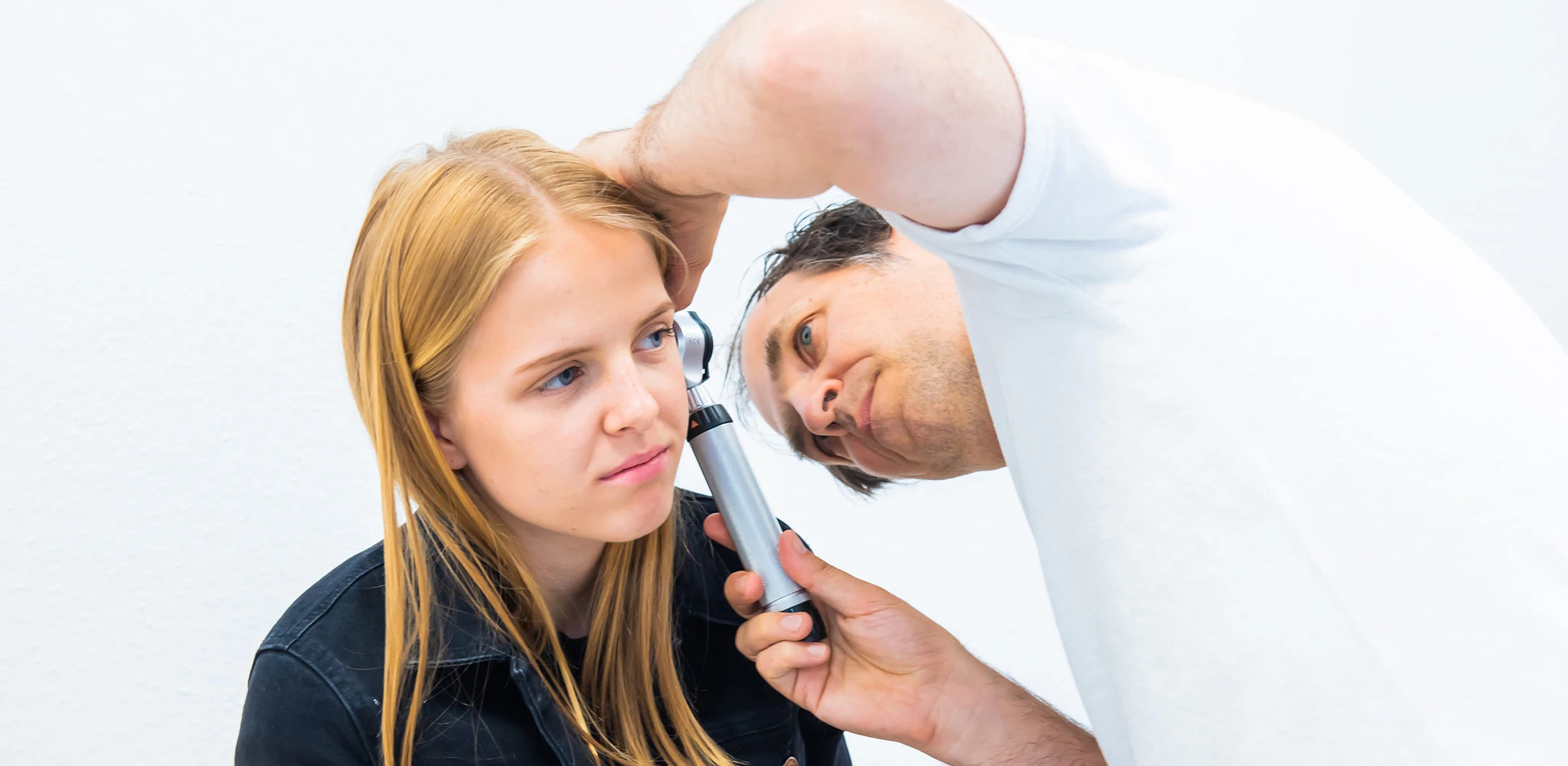The kissing disease
Today we are once again looking at a real classic in paediatrics: Pfeiffer's glandular fever. A disease without an antidote. But don't worry - we can still get your child back on track.
It is caused by the so-called Epstein-Barr virus and it is assumed that around 90 per cent of the adult population is infected with this virus. This is simply because they have had contact with it at some point in the past. In English-speaking countries, glandular fever is also known as "kissing disease" because it is transmitted by droplets when kissing. This means that either young children kiss their uncles or aunts, or often teenagers kissing each other, which then leads to transmission.
The disease is harmless in and of itself. There can be very mild cases, but there can also be cases in which the children are really in it, have a high fever, severe sore throat and often swollen lymph nodes. Abdominal pain can also occur, as the liver and spleen may be involved.
There is no real treatment for glandular fever. There is no real antidote. In practice, treatment consists of resting, taking it easy, drinking plenty of fluids and taking painkillers liberally - because the severe sore throat and abdominal pain can be very unpleasant.
If you want to know for sure whether a child has mononucleosis, you have to test the blood, which is a very good way of detecting it using antibodies. However, it often remains a kind of suspected diagnosis because the paediatrician simply recognises the clinical picture and you don't necessarily have to take a blood sample to confirm the diagnosis.
It is also important to note that some children recover really quickly from glandular fever, while others take much longer. It can happen that a child is simply not really fit for three, four or five weeks. That's why you should always start slowly with any kind of exertion after glandular fever. And the child should only continue with the exercise when he or she feels well. In all other cases, patience is the order of the day. But in the end, I have yet to see a child who has not recovered from the illness.
Further interesting tips
Psychological problem?
Today we have the combined knowledge of two experts: The Doc talked to Frank Köhnlein, author and child and adolescent psychiatrist from Basel, about the behaviour of children and adolescents in particular - and about when parents need to start worrying. The most important results.
Pseudo croup
An autumn classic in paediatrics: the pseudo-croup attack. This mainly occurs in the autumn/winter months and mainly affects small children.
U5 screening
Preventive medical check-ups are an important topic for parents. When it comes to the U5, the child is six months old and they already know some of the key elements of these appointments.
